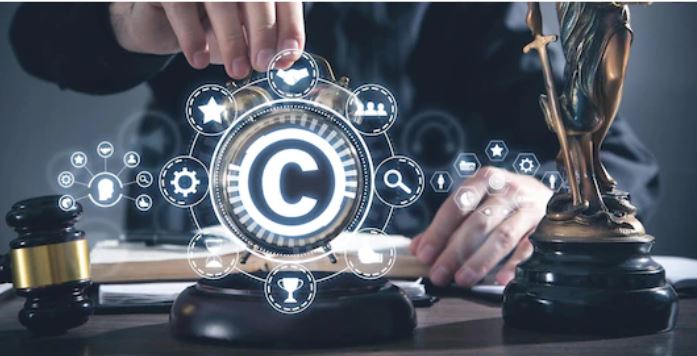Protection of Copyrights in Singapore
Introduction
One of the most important forms of intellectual property is copyright. A copyright is a set of rights available to any person or entity responsible for the creation of an original authored work. Rights related to distribution, reproduction, and public performance and display are among the intellectual property rights which comprise a copyright. Any business owner based in Singapore therefore ought to understand key concepts regarding copyright registration in Singapore, copyright protection in Singapore, as well as which items can be protected by copyright.

Under Singapore’s Copyright Act, it is a criminal offense for a person or company to conduct wilful copyright infringement. The statute of limitations for copyright infringement in Singapore is six years.
Copyright protects works like literary, computer programs, plays, music and paintings. It is not ideas but their expression that are protected by copyright law. Generally, the author of a copyright work has the right to reproduce, publish, perform, communicate and adapt his work. These different exclusive rights form the bundle of rights that we refer to as copyright. These rights enable a copyright owner to control the commercial exploitation of his work.
Copyright is a type of property that can be traded just like other types of tangible property. It can be licensed or transferred, either as an entire bundle (i.e., all of the distinct rights under copyright bundle) or as a single right (e.g. only the right to reproduce). The modern Copyright Act (Cap. 63) of Singapore was passed in 1987 and is based on Australian legislation. The original Copyright Act 1911 of United Kingdom remains relevant in relation to copyright material made before the current Act came into effect. For a work to be protected by copyright in Singapore, it has to be original and expressed in a tangible form such as in a recording or in writing. Originality simply means that there is a degree of independent effort in the creation of the work. It is not a question of whether the work has creative merit.
The Copyright Act is the primary intellectual property law governing copyright protection in Singapore. It allows all eligible authored works to automatically receive this form of intellectual property protection. There is no formal registration process required to be completed.
All authored works which may be protected by a copyright in Singapore must fulfil four criteria. To receive this intellectual property protection, these works must:
- have been expressed in a tangible form;
- be original;
- have a connection to Singapore in some way;
- be musical, literary, artistic, or dramatic works unless an exception exists for them.
According to Singapore’s copyright laws, the most important criterion is expression in a tangible form. Copyright protection takes effect as soon as this expression takes place.
The categories of authored works eligible for copyright protection in Singapore include the following: literary, dramatic, musical, and artistic works. There are also some copyrightable items which are not part of any category but may nevertheless be copyrighted. These items are films, sound recordings, television and radio broadcasts, cable programmes and performances. Creators who obtain intellectual property protection for these works receive legal, economic, and moral rights over them.
Protection of copyrighted literary, dramatic, musical or artistic works in Singapore published while the author is alive lasts throughout the author’s life and continues to be active until 70 years after the author’s death. Any such works published posthumously are protected by copyright for 70 years after the date of publication. Sound recordings, films, photographs, and performances benefit from 70 years of copyright protection starting from their release dates. Broadcasts, meanwhile, remain protected for 50 years after the broadcast date. In order to prevent any copyright infringements, proper intellectual property protection for such works is therefore of the utmost importance.
The creator of a copyrightable work in Singapore may register for intellectual property protection with the assistance of the Intellectual Property Office of Singapore (IPOS). This office is in charge of every facet of intellectual property in Singapore.
There is no legal requirement for a copyright owner based in Singapore to register it. Singapore’s copyright laws ensure that copyright automatically subsists in an original work once the work has been expressed materially. In addition, unlike many other countries, Singapore does not even have an official copyright registry. However, creators may nevertheless choose to undergo copyright registration with the IPOS which oversees this matter. It is a positive step for any original work’s creator to complete the process of copyright registration in Singapore with the IPOS. In addition to the intellectual property protection received, doing so will provide the copyright owner with a crucial item: the proof of copyright. This proof of copyright helps make enforcement of intellectual property rights a simpler process. Any creator who has suffered an infringement of intellectual property rights may use the proof of copyright to establish evidence that such a violation has occurred.
Conclusion
Those who have filed an official copyright registration with the IPOS are also allowed to sue any entity believed to have committed an act of copyright infringement. They may also receive statutory damages if the court rules in their favour. Only those who have registered in a timely manner may do so. “Timely registration” refers to registration which has been made before an act of copyright infringement has been committed.
If you are a Singapore-based business owner who owns any copyrightable items, you are advised to undergo the process of copyright registration. Doing so will protect your intellectual property from infringement and other threats. Registration guards the work which has become your pride and joy from being used or modified in an illegal manner. You can even choose to use copyright protection as a passive income stream. This form of intellectual property protection is also a means of generating revenue.
Author: Tanya Saraswat, in case of any queries please contact/write back to us at support@ipandlegalfilings.com or IP & Legal Filing.


